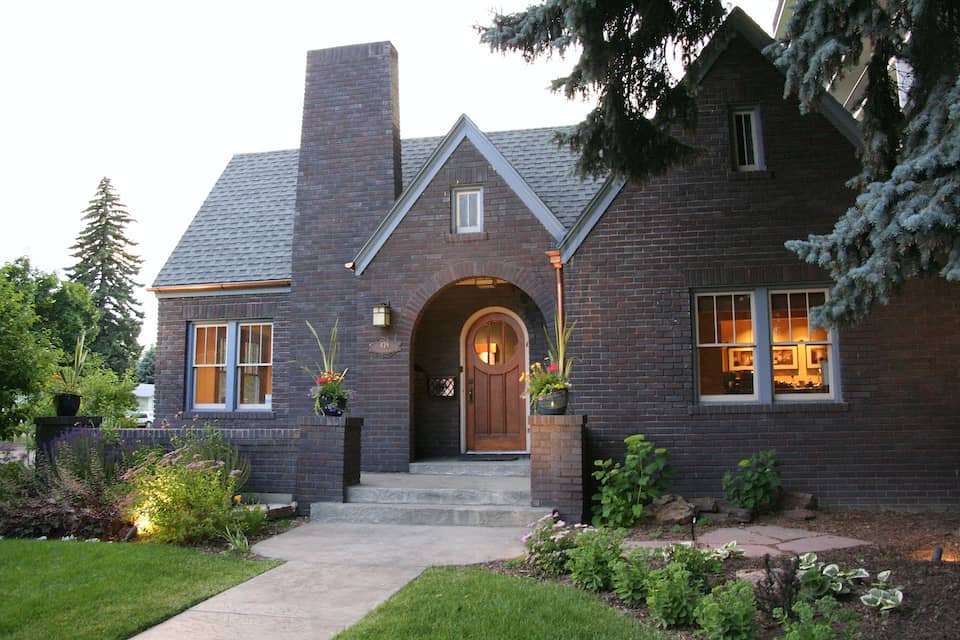When it comes to kitchen, bathroom and bar countertops, there are so many options to choose from, including laminate, wood, granite, engineered quartz, soapstone, marble, stainless steel, tile, glass, travertine, concrete and more.
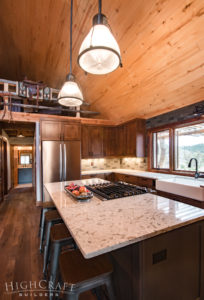
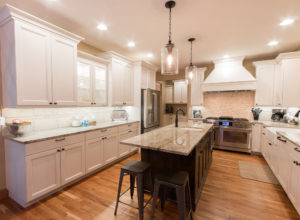
So we asked local experts Matt Myers at Granite Imports and Corbey Weaver at Weaver Stone Company to narrow the list, and give us their thoughts on the top stone materials in today’s countertop market.
Two materials clearly broke away from the pack.
What are the most popular stone countertop materials right now?
“Granite is still what the majority of people pick out when coming to our showrooms,” says Matt, adding that engineered quartz comes in at a close second. Granite and quartz countertops, in a range of white and gray tones, seem to be what people want the most. Corbey is seeing a surge in demand for engineered stone, and says, “Quartz is super popular right now.”
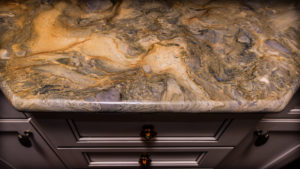
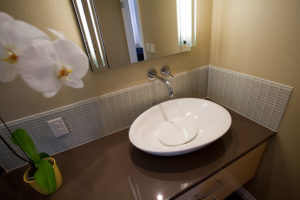
What are the physical differences between granite and engineered quartz, and where do they each come from?
Granite is natural, porous igneous rock containing mostly quartz and feldspar. Granite slabs are quarried from the earth in Spain, India, Italy, the U.S. and other countries around the world, so each slab is unique. The hard surfaces of granite countertops can be polished to a glossy shine or honed to a matte finish. Because granite is a natural material, it can have a “salt and pepper” appearance or veining similar to marble, and is known for its variation in pattern and color.
Quartz countertops are man-made stone surfaces formed by combining ground quartz (a natural mineral) with resins, bonding agents and pigments. “Quartz is manufactured and compacted under thousands of pounds of pressure,” says Matt, so these engineered composite countertops have a very hard, non-porous, consistent surface. Engineered quartz countertops are available in a wide range of colors and patterns – some even mimic the veining of natural stone, such as marble and granite.
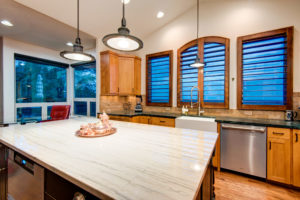
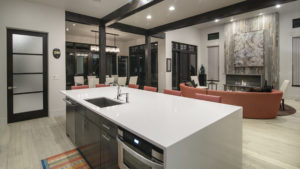
What are the basic pros and cons of granite and quartz?
According to Matt, traditional granite countertops offer unique patterns and colors, come in a variety of finishes, are heat and scratch resistant, and increase home value. The downside to granite? It’s cold to the touch, trying to match slabs can be tricky, and granite needs to be sealed periodically.
Matt points out that engineered quartz is stain resistant, durable, consistent in color and patterns, and non-porous, so no sealing is required. A potential drawback to engineered quartz is that it can look manufactured – somewhat plastic-like – and not as unique and natural as granite. Quartz countertops are also sensitive to heat.
“Natural stone can be top polished and modified if necessary after install,” adds Corbey, describing an advantage of granite. She points out that you can’t top polish engineered quartz, or modify the factory finish, once installed. So if you somehow manage to scratch the durable surface of your quartz countertop, it’s nearly impossible to repair. With granite, it is possible to fill a chip or a scratch and then polish the surface to hide a repair.
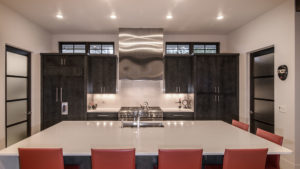
Which material is the most durable?
“Both granite and quartz materials are very dense and very durable,” says Matt. “However, granite can have natural veining or fissures that can sometimes cause weak spots that are slightly susceptible to breaking.” While granite is strong, engineered quartz (free of natural imperfections and veining) is much stronger.
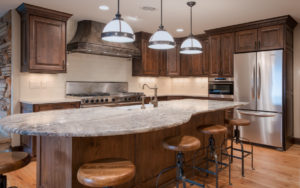
Which material is the most affordable?
“We can help someone find affordable colors in both natural stone and quartz,” says Corbey, adding that quartz is often more affordable due to the ease of fabrication. In her experience, she’s noticed that as the cost of natural stone goes up, the cost of fabrication typically follows suit.
“Both granite and quartz are very comparable in pricing with each other,” says Matt, who says you can find unique granite, and quartz with consistent patterns, at very reasonable prices. With quartz, however, “you will pay more for materials that mimic natural stone or marble.”
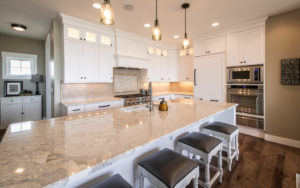
How does a person’s lifestyle factor into selecting the right stone countertop material?
“A person’s lifestyle plays a big part in the selection of stone for their countertops,” says Corbey. “They could be super busy and don’t want to worry about maintenance. Or they want a real centerpiece – something out of the ordinary. Maybe they like their life clean and simple, or they love styles that are more traditional. Every answer helps us guide the customer toward the stone choice that fits their lifestyle, whether it’s budget-driven, design-driven, or both.”
“If you have small children or like to cook a lot, then marble and soapstone might not be the best options,” says Matt. “Granite and quartz would be more durable.”
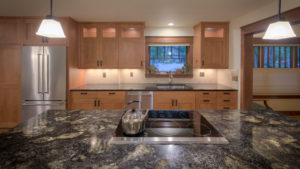
Which countertop material is your favorite and why?
“Granite has always been my preferred countertop choice for a couple of reasons,” says Matt. “Granite countertops add significant resale value to your home. Also, granite is so unique in patterns, colors and veining, that it makes your countertops more ‘one of a kind’ than other manufactured materials.”
“I’d need a minimum of five different kitchens to satisfy all of the styles I like,” Corbey admits half-jokingly. “There are too many to choose from.” She says there are some beautiful quartz options that mimic marble, and quartzite (a natural stone), that are durable and come in some fabulous colors.
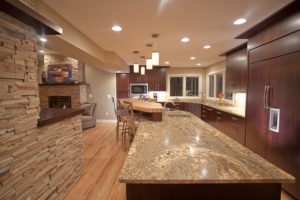
If you’re thinking about updating the countertop in your kitchen, bathroom or bar, contact HighCraft Builders for a free consultation.
Granite Imports Fort Collins is a Colorado-owned and operated natural and engineered stone distributor serving Northern Colorado, Western Kansas, Western Nebraska, Wyoming, North Dakota, South Dakota and Montana since 2011.
Fort Collins-based Weaver Stone Company fabricates custom countertops and other interior surfaces from natural and engineered stone. Since 2008, Weaver Stone surfaces have added beauty and value to interior spaces through Northern Colorado.
